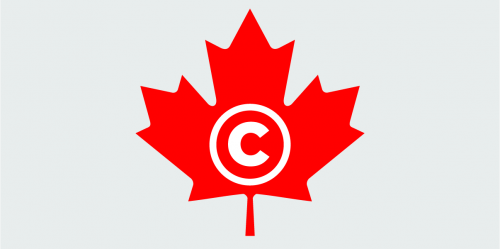Today, the Court of Appeals for the Federal Circuit heard arguments in ClearCorrect v. ITC, a case that threatens to give private companies, via agency power, broad ability to censor and regulate the Internet. But this isn’t a case about net neutrality. Instead, it’s a patent case where the patent owner is asking the Federal Circuit to uphold an agency order banning certain data from entering the United States via the Internet. EFF, along with Public Knowledge, filed an amicus brief in the case arguing that there is no authority allowing this; at least, not the way the patent owner is arguing.
In ClearCorrect, the patent owner (a company called Align) is arguing that a digital file containing data to make orthodontics infringes Align’s patents. In an attempt to prevent the file, which is made in Pakistan, from being sent to the U.S., Align went to the International Trade Commission (ITC), an executive agency that, among other things, “adjudicates cases involving imports that allegedly infringe intellectual property rights.”
The ITC’s ability to hear cases comes from a statute, that states it has the authority over “[t]he importation into the United States....of articles that—infringe a valid and enforceable United States patent or a valid and enforceable United States copyright.” In the decision now on appeal, the ITC found that the transmission of purely digital data, sent to ClearCorrect’s U.S. based servers from a company in Pakistan, was “importation of ... articles” within the meaning of the statute, and therefore gave broad authority to the ITC to prevent the data from “entering” the country.
This is a dangerous decision for the Open Internet, and risks creating a system where the executive can order data “seized” as it travels over the Internet. This could open the door for companies to push for site blocking.
It’s not surprising if this sounds familiar, and problematic. The content industry attempted to get this type of site-blocking order from Congress in SOPA, but that ill-considered legislation was soundly rejected. The MPAA weighed in on the side of the patent owner in ClearCorrect, which is consistent with a leaked memo that detailed the plan to try to use the ITC to force ISPs to block consumer access to websites. The MPAA’s interest in ClearCorrect, along with other recent activity by the MPAA, show that the MPAA’s efforts to censor the Internet has moved from Congress to the judicial and executive branches.
This case is the second of recent Federal Circuit cases looking at ITC jurisdiction. The first, decided by the full Federal Circuit just yesterday in a case called Suprema v. ITC, held that the ITC could block the importation of articles where the importer later “induced” infringement of a patent. Put in plain English, the Federal Circuit gave the ITC authority to order customs to seize goods—even if they could be used in ways that are not infringing—where the importer later intends others to infringe a patent. This decision has the potential to have broad anti-consumer effects: a patent holder can get all products excluded if one of the uses infringes a patent and the importer intends that infringement, even if not all the products are being used to infringe. This undermines the fundamental principle, dating back to at least the Betamax case Sony v. Universal Studios, that goods should not be banned simply because they have some infringing uses.
Together, these two cases have the potential of massively expanding the Executive’s power over the Internet in a way that could be broadly abused. If the courts and the Executive continue down this path, Congress should act to clarify the ITC’s jurisdiction to make clear that those who tried—but failed—to get SOPA passed cannot get it through the back door.








